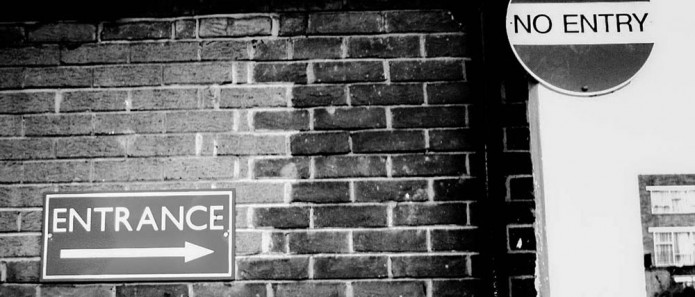The Perverted Desire to be Omnipotent
Since time immemorial, there has been espionage and surveillance. Spies, in various forms and nuances, have always been used to gather information on undiscerning specimen(s). Now, with the advancement of technology, spying has shifted from the traditional/iconic Mr. John Smith persona, who acted like your ally but was in cahoots with the enemy, to impersonal machines hacking information via wireless networks by people in isolated rooms anywhere in the world for motives both benign and malevolent. In modern day espionage, there is the growing notion of having mass surveillance of people for the purpose of controlling and gathering intelligence; indeed, a future reminiscent of Orwell’s prophetic 1984.
One example of modern surveillance in its nascent form is the Panopticon. In 1791, Jeremy Bentham, an English philosopher and abolitionist, designed and published his ideas for surveillance in prisons through a structure he dubbed the ‘Panopticon’. The Panopticon is an architectural design in which a circular structure encircles a single observer tower at the center. Within the circular structure are the prison cells, which are shielded so that the inmates cannot see the observer tower, but the observer within the tower can see into every cell in the prison; hence, the prisoners are unable to know if they are being watched while the observer can very easily monitor all of the prisoners. Bentham’s innovative idea of how to observe a mass group of people, both individually and collectively, is touted for being the catalyst for the modern surveillance systems of tomorrow.
However, what was originally intended to be in prisons only has escaped its shackles to include society in general. With the invention of Closed Circuit Television (CCTV) in the 1940’s, Bentham’s idea reached its potential. Now cameras could be placed anywhere; people could be very easily monitored and, with the advent of more sophisticated computer systems later on, very easily identified. It is now a curious phenomenon just how much we are being spied on every day – at intersections, stores, public squares, via cell phones, internet, texting, e-mail, and wherever else we don’t know….
Especially under the safety blanket of war on terrorism and scare tactics, governments have tried to broaden their control on the population through mass surveillance. The National Security Agency (NSA) was exposed earlier this year for their mass surveillance of US citizens. They are collecting various categories of metadata from phone calls and deciphering it using information mining filters to collect intelligence that is deemed noteworthy.
Meanwhile, technologists, at the behest of governments worldwide, are hard at work advancing the processing speed by which faces can be identified. Governments and military are using the same filtering system they use to recognize voice and text, but now are integrating it with Facebook’s technology of identifying and tagging people in pictures, which they can then apply to live video surveillance. There are already databases of biometrically analyzed pictures that people post of themselves and others on Facebook.
Mass surveillance, although unscrupulously deemed by some as necessary for safety, has a great possibility for abuse. How far should surveillance go and personal freedoms forfeited, before one starts to feel like a prisoner in the Panopticon?
The Bhagavad-gita teaches that only Krishna, or God, can be the true observer of all living entities. His presence is completely benevolent, without any tinge of mundane self-interest or corruption.
In the commentary to Bhagavad-gita 5.15 it says:
“The Lord is the constant companion of the living entity as Paramatma, or the Supersoul, and therefore He can understand the desires of the individual soul, as one can smell the flavor of a flower by being near it. Desire is a subtle form of conditioning for the living entity. The Lord fulfills his desire as he deserves: Man proposes and God disposes. The individual is not, therefore, omnipotent in fulfilling his desires. The Lord, however, can fulfill all desires, and the Lord, being neutral to everyone, does not interfere with the desires of the minute independent living entities.”
When those in power imitate having the powers of God, but failing to have the same benevolence as God, neglect the people’s welfare for their own selfish interests, a scary situation is born. Attempting to imitate the Supreme Being is one of the major diseases of an unhealthy soul, and everyone in their sphere of influence is affected.
“Similarly, the living entity… starts his own business to compete with the Lord. There are many competitors out to attain the Lord’s position, but to become like the Lord is not at all possible. Thus there is a great struggle for existence with the material world as different parties try to imitate the Lord. No one can become one with or equal to God. To imagine this is to continue one’s bondage in material existence.” – Srila Prabhupada






